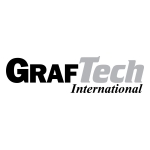Enterprises expect a significant share of ROI on GenAI initiatives to come in 2025
Enterprise Spending on GenAI Expected to Rise 50% in 2025, as Focus Shifts From Efficiency to Expertise
Press:
Will Thoretz, ISG
+1 203 517 3119
will.thoretz@isg-one.com
Julianna Sheridan, Matter Communications for ISG
+1 978-518-4520
isg@matternow.com
A new research report from Information Services Group (ISG) (Nasdaq: III), a leading global technology research and advisory firm, projects enterprise spending on generative AI (GenAI) will rise by 50 percent in the coming year, as companies shift their focus from efficiency to augmenting human expertise.
ISG will present the findings of its ISG State of Applied Generative AI Market report here today at the 2024 ISG Sourcing Industry Conference (SIC), the industry’s premier annual event for service and technology providers. The second annual report details GenAI trends, use cases, solutions and challenges, and offers data-driven insights and a roadmap for adopting GenAI at scale.
While GenAI is being tested and used in many business domains, the most well-funded use cases are focused on driving value for customer-facing work. The study shows efficiency, in the form of saving time and driving faster resolutions, is the primary enterprise motivation for implementing GenAI, followed by business growth, cost savings, customer service and innovation.
To achieve those efficiencies, 28 percent of companies say they are applying GenAI to customer service chatbots, with other top uses being business process workflow management (21 percent), customer service support (19 percent) and contact center management and monitoring (15 percent).
“Enterprises are currently using GenAI to make their processes and workflows faster,” said Steve Hall, chief AI officer, ISG. “In 2025, users will increasingly look to GenAI to augment human expertise, drawing on its immense ability to mine data for information they can use in functions including compliance, forecasting, market research, supply chain planning and software development.”
The study predicts enterprise spending on GenAI initiatives will increase by 50 percent in 2025, as companies expect to achieve a greater share of their return on investment (ROI) in the technology in the coming year. For instance, 17 percent of organizations expect to capture efficiency ROI in 2024, while more than three times as many – 54 percent – expect efficiency ROI in 2025. Similarly, 18 percent expect customer service ROI in 2024, rising to 58 percent in 2025. The research results showed similar jumps in expected ROI for innovation, cost savings and business growth.
The biggest portion of enterprises that are exploring GenAI (43 percent) are currently in the live pilot or trial stage. Eight percent of enterprises are still evaluating tools and providers, 7 percent are in the testing phase, 27 percent are moving towards full production and 15 percent are fully in production.
“Enterprises want significant, large-scale wins from GenAI rather than numerous minor victories. Despite promising results from pilot projects, the size of these efforts is often marginal,” Hall said. “AI tools are currently deployed with a ‘human in the loop’ to manage and validate output before it is delivered to customers. This is an important quality control measure, but it limits the ability of enterprises to scale GenAI and realize meaningful return on investment.”
While the ability to operate GenAI without the constraints of humans in the loop would open the door to returns that scale in a non-linear way and to investments in applications that focus on growth and new products, Hall said enterprises are taking a safe, liability-limiting approach to GenAI for now.
“We expect enterprises will continue to diversify GenAI usage across human-in-the-loop use cases and embrace AI-driven services that incorporate efficiency improvements,” Hall said. “Over the longer term, enterprises will need to make further technical progress and better understand the associated risks before they begin trying use cases with greater scale and ROI.”
Additional information on the ISG State of Applied Generative AI Market report is available on the ISG website.
About ISG
ISG (Information Services Group) (Nasdaq: III) is a leading global technology research and advisory firm. A trusted business partner to more than 900 clients, including more than 75 of the world’s top 100 enterprises, ISG is committed to helping corporations, public sector organizations, and service and technology providers achieve operational excellence and faster growth. The firm specializes in digital transformation services, including AI and automation, cloud and data analytics; sourcing advisory; managed governance and risk services; network carrier services; strategy and operations design; change management; market intelligence and technology research and analysis. Founded in 2006, and based in Stamford, Conn., ISG employs 1,600 digital-ready professionals operating in more than 20 countries—a global team known for its innovative thinking, market influence, deep industry and technology expertise, and world-class research and analytical capabilities based on the industry’s most comprehensive marketplace data. For more information, visit www.isg-one.com.
View source version on businesswire.com: https://www.businesswire.com/news/home/20240923150960/en/
 Business wire
Business wire 









Add Comment